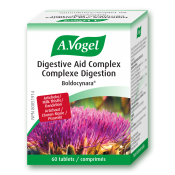If it becomes the new way of life, this movement could seriously affect the business of nutritionists and other health practitioners, not to mention putting several drug companies out of business.
A Canada-wide understanding of the importance of what you eat and how you eat it would mean fewer legions of people suffering from acid indigestion, heartburn, nausea, acid reflux and so on.
However, it does take time to chew your food, and if you have a mere 20 seconds to get through your sandwich between appointments, it’s going to hit your stomach like a ton of bricks, with no advance warning.
Why does it matter?
When you smell food being prepared, your salivary glands wake up and produce saliva in anticipation of the meal to come.
When you take the time to chew, saliva moistens the food and starts to break down starches. All this activity sends messages to the stomach that food is about to arrive, causing digestive juices to be produced.
When food arrives in the stomach, the stomach acid and digestive enzymes that have been produced are ready to start breaking down proteins.
This process alerts the rest of the digestive tract and as the food moves along to the small intestine, more digestive enzymes and factors such as bile are produced to break down fat and other components of the food.
Nutrients are absorbed through the small intestine wall and wastes move along to the bowel, where water is extracted and the remaining wastes are expelled.
When you don’t take time to chew and relax – a bit – over your food, giving your digestive system a head’s up, this whole system falls apart and the result is digestive mayhem:
And if eating too fast is a regular occurrence further problems arise
- Overgrowth of unfriendly bacteria,
- Helicobacter pylori infections and
- Stomach ulcers
These digestive problems can cause other symptoms that we may not connect to our digestive tract: fatigue, headaches, skin rashes, etc. Now hands up who recognizes a batch of their own symptoms?
Stomach acid
This gets a bad press. It’s blamed for getting above itself and swamping the stomach. It is, however, vital for protein digestion – undigested or poorly digested food will decay in the system and produce toxins, quite the same way that food festers and attracts vermin if left lying around outside of the body.
Stomach acid also kills unfriendly microbes that enter through the mouth. In fact, low levels of stomach acid can cause symptoms that would often be blamed on excessive acid: bloating, gas, digestive pain, as well as undigested food particles in the stool, bad nail and skin condition, and anemia. Not having enough stomach acid means it is easier for unfriendly bacteria to flourish.
Candida albicans
Candida is one of them, causing many symptoms including vaginal and oral thrush, low immune function, fatigue, bloating, cravings, and mouth ulcers. Candida lining the gut can prevent proper absorption of nutrients. We all have Candida in our gut all the time, so it is not inevitably a problem. It is poor digestive function along with stress, poor diet (low in fibre, high in refined carbohydrates) and overuse of antibiotics that causes the overgrowth. Once it’s established, it tends to spread around the body, causing recurrent cystitis, athlete’s foot, fungal nails and the like.
Helicobacter pylori
Once your system is nicely debilitated, with incorrect acid production and inflammation in the gut, it is easy for nasty bacteria such as H. pylori to get a foothold, foraging into the stomach wall and creating damage that can lead to ulcers. Treatment for this involves antibiotics and stomach medication that do nothing to repair digestive function.
Do something rational!
Start your own Slow Food movement!
- Sit down to eat – even breakfast
- Relax. Remember a time when prayer was said before each meal? Not a bad idea: it gives time for the body to anticipate food and start preparing, while your central nervous system switches off from the tasks you were recently buzzing with
- Chew each mouthful thoroughly. Yes, really chew! It’ll take much longer to get through your food so you won’t need to eat so much. This is good because overeating doesn’t help.
- Stay sitting down for at least five minutes after you’ve eaten to give your stomach a chance to get started.
- Avoid caffeine, refined carbohydrates (that’s most fast or processed food), fried foods high in fat (clearly, junk food is out!), and alcohol.
- Eat short grain brown rice, live yogurt, pineapple and artichokes, all of which are good for your digestion.
- Eat garlic and onions to fight off fungi.





